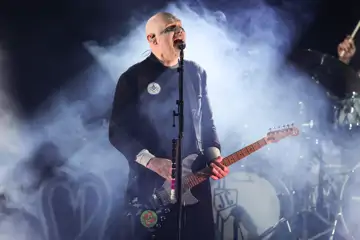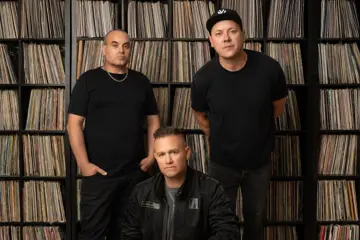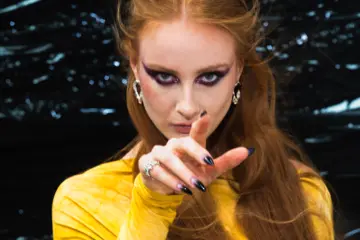MARRIAGE STORY
★★★★1/2
All good things must come to an end. Especially marriage. At first there seems like irony at play in the title of Noah Baumbach’s 13th feature; a thoughtful, memorable, deeply-emotional depiction of separation. A more apt title would be ‘Divorce Drama’. But, then again, in documenting the difficult, contentious end to its titular union, Baumbach is, indeed, exploring marriage, both in fictional specifics and in a greater social sense.
We’ve seen endless screen examples of falling in love or getting hitched, but few films so unafraid of exploring the ugly realities of what sets in after a decade together. Not just some comic riff on middle-aged restlessness, but an unflattering exploration of two great people with the best of intentions eventually hurting each other over time; when resentments fester, the dynamic turns toxic, and each once-perfect paramour is poisoned by the relationship that has up to that point — and likely still will forevermore — defined their existence.
Adam Driver and Scarlett Johansson play — quite brilliantly — the central couple: an ‘avant-garde’ theatre director, and the actress who serves as his muse, co-collaborator, and co-parent. We’re introduced to them in an instant-classic opening that sets the tenor for Marriage Story. Over an illustrative montage, Driver lists those carefully-observant and impossibly intimate things he loves about his wife: from the way she carefully listens and negotiates family drama, to the undrunken cups of tea she absent-mindedly leaves around their NYC apartment. We then shift perspectives, with Johansson repeating the narratorial device: speaking, in voice-over, her admiration for his determination, the ability to instil confidence in self and others, and to foster a community. Each is a beautiful valentine, soaked through with love and humanity.
Only, this grand romantic gambit is soon revealed to be a sham, sly storytelling misdirection. These are letters the pair have written for a mediation meeting, as a requirement, a hopeful reminder of why they even ended up together in the first place. Even then, having already won our hearts with her words, Johansson declines to read her text; soon storming out angrily, all these positive sentiments no match for all the gathered negativity.
Don't miss a beat with our FREE daily newsletter
What unfolds is a drama, stretched out over an episodic year, in which the couple goes through a divorce; with their young son, Azhy Robertson, forever in the middle. Much of our central couple’s separation is cordial, sometimes it’s even loving. But often it’s bitter, even — especially in one of the most lacerating on-screen arguments since Richard Linklater’s Before Midnight — outright hostile.
Baumbach, having gone through a high-profile divorce, himself, to Jennifer Jason Leigh, clearly has much history invested in the material. Its sharpest writing conveys how cordiality, decency, and basic humanity are lost once the gears of the legal process start turning. Especially given the ridiculous cost of representation; the financial stresses only adding to the emotional/logistical burden of the whole undertaking.
Playing the lawyers profiting off this marital failure are a spot-on Laura Dern (whose Amy Jellicoe-adjacent character peddles a wholesome, self-help form of legal-representation-as-narrative-therapy), a great Alan Alda (all world-weary eyes, rumpled humanity, and a benign resignation that’s not ideal for legal representation), and an inspired Ray Liotta (as legal showman whose great dramatic persona is founded on indignation). Each lawyer paints the respective parties in the worst light, offering a distorted reflection on what we’ve seen, and a dark counter to the professions of love on opening.
Baumbach is still, at heart, a comedian; and here there’s showbiz satire (which includes a reunion with Carlos ‘Otis from Kicking & Screaming’ Jacott), an appearance by Rich Fulcher as a clueless judge, and a high-comic set-piece in which Driver cuts open his arm in front of a child-welfare evaluator, but insists it’s fine even as blood splatters.
But the brilliance of Marriage Story is in its bittersweet details. There are moments here that are tiny, but incredibly meaningful: an untied shoelace, a glance, the gossip amongst the theatre crew and cast, unspoken yet evident familial dynamics. And, like a Joanna Newsom song, telling are the moments when someone uses the term-of-endearment “honey”. Baumbach’s written observations echo those opening letters; the all-too-moving texts which weren’t read to their respective soon-to-be-former spouses, but lingering throughout, and return at the end. We hear all their profundity, all their love; a thoughtful acknowledgment of a happy past in an unhappy present, in the face of an uncertain future.
THE REPORT
★★★1/2
Like some unearthed batch of documents made public, The Report can feel a bit like an information dump. In its 119 minutes, we rarely stop for a breath. Writer/director Scott Z. Burns, instead, fashions a film that moves fast and says a lot (both literally and figuratively), wishing to cram its running-time full of facts, figures, and fuck-ups. Rather than leaning heavily on poetic dramatisation, he instead parades a host of “ugly truths” in front of viewers, letting the attendant outrage gather as it goes.
This is a film about the work that goes on in the underground bunkers of congressional oversight and ‘enhanced interrogation techniques’; the clandestine, often dirty business of policing intelligence bureaus and/or torturing prisoners. The report in question is a Senate Intelligence Committee investigation into the interrogation tactics of the CIA during the ‘war on terror’; it largely takes place under the dull fluorescent lights of DC offices, but occasionally throws viewers, headlong, into the brutal horrors of torture.
Douglas Hodge and T. Ryder Smith play the slimy salesman who, like rapacious capitalists eyeing an exploitable gap in the market, sell the CIA on “a whole new approach to interrogation” (by way of powerpoint presentation). With the terrorist attacks in 2011 America used as justification for anything and everything, they demand torture as a counter; less due to its effectiveness, but as an expression of the impotent rage of those seeking pure revenge. The results seem like some kind of sadistic fetish ritual — nudity, humiliation, shaming — but are justified with the infomercially-vague catchphrase “it's based on science” and parroted by conversative-politicians adhering to a PR rollout. All hail the military-industrial complex, and the All-American business of war.
Standing up for basic human decency is Adam Driver, who plays the senate staffer given the unglamorous task of doing the report-collating work. He’s an idealist, someone who doesn't believe in leaks or spin, and has unwavering faith in proper channels, legalities, the turning gears of democratic process. The titular document is 7000 pages of meticulously gathered facts; whose assembly Burns, of course, compresses into passing-of-time montages and wall-covering photos-and-documents-connected-by-red-string collages.
The great moments of theatre — where senatorial investigations are made grand drama, worthy of upholding democracy — come when Burns sets the stage for Driver to deliver impassioned orations on his findings; those horrifying facts and ugly truths. And, in turn, on morality, ethics, humanity, and national identity. Driver knocks these monologues out of the park, having the command of an impassioned public speaker and the control of a brilliant screen actor. I'd say it's an Oscar-frontrunner, but, with Marriage Story, Driver is clearly going to face stiff competition from himself.















